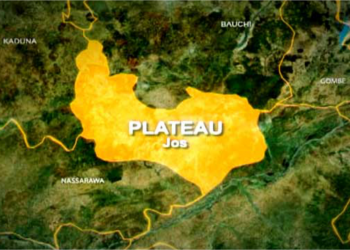The author of the controversial book, ‘Ikono The Cradle of Civilization: A Refutation,’ Dr. Uwem Jonah Akpan, has reacted to the call and threats by the elders council to withdraw his “book” from circulation saying he would stand by his thesis at any level irrespective of whose ox was gored.
“Meanwhile, I stand firmly by my thesis, which has not been punctured and do not have any apology for contributing significantly to the development of my race in the area of my competence. I will defend my thesis at any level,” Dr. Akpan said.
Recall that the Ikono and Ini elders in Akwa Ibom State had issued a seven-day ultimatum to Dr. Akpan to apologise for associating their names with his book without authorization.
The elders representiing Ikono and Ini Local Government Areas had threatened to sue him if he failed to withdraw the book from circulation after seven days.
Addressing a press conference at NUJ Press Centre, Uyo on Friday, Eteidung Ntok E. Ntok, the village head of Ukpum Ita said: “We hereby state categorically and without any ambiguity that we were (and still are) not a part of this contrivance and concoction of lies aimed at disparaging us, our people and our royal heritage.”
In a reaction entitled: ‘Intimidation of My Informants in Ikono and Ini Local Government Areas by David Ukpong and Some Ikono Elite in Conjunction with Ikono Traditional Rulers Council,’ Dr. Akpan called the bluff of the elders council saying his thesis was a product of an extensive research to correct wrong impressions created by “a non-historical book.”
He said his thesis was motivated by the need to “refute a non-historical book entitled Ikono the Cradle of Ibibio Nation: Historical Origin and Cultural Heritage, which was sponsored by a socio-cultural organisation known as Mboho Ndito Ikono Ndo Ini, written by three non-historians, namely: David Ukpong, Martin Akpan and Nnamso Akang, and published in 2001.”
The statement reads:
“My attention has been drawn to the current acts of intimidation of those individuals from Ikono and Ini Local Government Areas, who freely volunteered information during the period of the extensive research I conducted to enable me refute a non-historical book entitled Ikono the Cradle of Ibibio Nation: Historical Origin and Cultural Heritage, which was sponsored by a socio-cultural organisation known as Mboho Ndito Ikono Ndo Ini, written by three non-historians, namely: David Ukpong, Martin Akpan and Nnamso Akang, and published in 2001.
“My counterpoise is entitled, Ikono the Cradle of Ibibio Nation: A Refutation. It was presented to the public on the 9th of December 2019. It should be recalled that when my book came into the public space, David Ukpong, the lead author of the refuted book, became incensed and embarked on series of direct threats against me. For instance, one of his messages he sent to me was that “If I do not withdraw the book from circulation, I will regret my action”. His action is of public knowledge and the matter is being investigated by the relevant security arm of government. Consequently, the scenario should not detain us.
“The intimidation by David Ukpong and some Ikono elite, in conjunction with Ikono Traditional Rulers Council, first started with the issuance of traditional injunction against the chiefs from Ikono not to attend the public presentation of the book. Subsequently, the issue escalated to an extent that they threatened the informants, having already compiled their names, summoned the informants to appear before a disciplinary panel of the Ikono Traditional Rulers Council to sign an already prepared document recanting the information they volunteered which I used to corroborate the extensive written evidence and ethnographic data in the course of my research. The signed document, I have been reliably informed, is intended to be published in a newspaper in a no-distant future with the intent of weakening/diluting the robust historical evidence contained in my book. In fact, they have threatened to influence the withdrawal of the certificates of recognition of the village heads whose names appear in my book should they fail to sign the document.
“Suffice it to say that having noticed the fact that their book was riddled with falsehood and their claims not substantiated with historical evidence, I – being a historian, ably armed with the technique of historical craft – decided to adopt the “inside out” perspective in my refutation. This resulted in the study of the constituent groups in Ikono and Ini Local Government Areas, which the authors of the earlier book have lumped together and wrongly referred to as Ikono Ibom Atai. In terms of my methodology, I adopted the historical analytical method. My study is sufficiently backed with written sources by the colonial authorities and Nigerian authors; archival materials such as Intelligence reports and ethnographic data such as totems, deities, legends, etc.
READ ALSO: Book Publication: A’Ibom Elders Give Author 7-Day Ultimatum To Apologise Or Face Legal Action
Some of my informants included Eteidung Ikpe Umoh of Ikot Idaha, Ikot Idaha Group, Ikono Local Government Area; Chief Gregory Umoren of Ikot Oku Ubo Ediene, Uyo Group, Ediene Clan, Ikono Local Government Area; Eteidung Akpan Akpaden of Ikot Antem, Ediene Clan, Ikono Local Government Area; Chief Godwin Uba of Ikot Nseyen Nkwot, Ikono Local Government Area; Eteidung Effiong John Akpan of Nnung Ukim Ikot Etefia; Eteidung John Inyang Akpan of Mbiakpa Ibakesi, Odoro Ikono Clan, Ini Local Government Area, among others.
“For the avoidance of doubt, I wish to re-state that Ikono is a splinter group of Nsit. This assertion is backed by oral tradition which states that Ikono ekedo Akpan Nsit. The principal deity of all Ikono people – Etefia- is properly called Etefia Akpan Anyang Nsit. Ikot Oku Ikono in Uyo Local Government Area is the ancestral home or parent stock of all Ikono people including those that occupy present-day Ikono Local Government Area and a section of Ini Local Government Area. The mother Etefia shrine domiciles in Ikot Oku Ikono. The shrines of deities of the other clans in Ibibio land such as Itina Iman, Anyang Nsit, Abam Itak, Ukana Offot, Awa Itam, Afia Ndem Etoi, Udoe Oku, Udoe Idoro etc., are also found within that proximity. The sub-Etefia shrines domicile in Ikot Idaha and Nnung Ukim Ikot Etef in Ikono Local Government Areas.
“After the dispersal of Ikono people from Ikot Oku Ikono, they settled at Ikot Idaha before further migration took them to Mbio-Oku area in present-day Ikono Local Government Area. My position is evidently backed by archival sources, and oral tradition and related sources. Based on the available evidence, the present-day Ikono and Ini cannot be regarded as the cradle – ntippe Ibibio. Indeed, the claim that the present-day Ikono and Ini Local Government Areas are known as Ikono Ibom Atai is false. No such area existed in Ibibio land until it was coined by the authors of the now discredited book in 2001.
“Moreover, it is evidently noted that groups in Ikono and Ini Local Government Areas, such as Ediene, Itak, Itu Mbonuso, Iwerre, Nkari (a section of Ikpe), etc., are not of Ikono stock but distinct Ibibio groups. All the groups have separate totems and deities as well as some cultural peculiarities. The present affinity is a colonial imprint. The people were brought together for administrative convenience. The situation is just like the fact that Ikono and Ini Local Government Areas are in Ikot Ekpene Senatorial District, a situation which does not make them to be Annang people.
“My work also refutes the cheap claim by the authors that the Ibibio and all her sub-groups first migrated from Ibom in Arochukwu region of present-day Abia State, having been expelled as a result of the Igbo-Ibibio War in 1550 and “congregated” in Ikono-Ini axis where they later dispersed to inhabit the respective abodes they now occupy. The correct situation according to available evidence which is contained in my book is that the earliest set of Ibibio migrants who were sea-borne accessed Ibibio land from Usak Edet region of the Cameroon in trickles via diverse routes.
“The Igbo-Ibibio War which these authors cited as the mono-causation of Ibibio dispersal is regarded by available sources as “a recent phenomenon”. This is because at this time, the Ibibio mainland was teeming with human beings who have occupied the area for many centuries. The Akpa (Ejagham) mercenaries, whom the Aro Igbo used to dislodge the Ibibio from Ibom in Arochukwu, used firearms which they got from the Calabar coast. This explains the fact that it was after the Portuguese had arrived Calabar in 1472, an event that pre-dates the Igbo-Ibibio War of 1550, and started to deal with the Efik as middlemen in the ensuing trade that the Akpa got the guns. It also explains that it was after the Efik had dispersed from Uruan in Ibibio land that this was actualised.
“The essence of my book is to correct the many misconceptions inherent in their work and re-position the Ibibio, Nigeria’s fourth largest ethnic nationality and, as noted by Percy Amaury Talbot – one of the leading colonial officers in Southern Nigeria – the Ibibio are “one of the most ancient peoples in this or perhaps any part of Africa, who have probably been in this neighborhood for many thousands of years”.
“Having successfully punctured their “story book”, I would have expected these authors to be humble and introspective, accept “defeat”, retire and research further and come back with superior arguments to challenge what I have done. I openly challenge them to mention any issue that is contained in their book that I have not punctured.
“They should know that intellectual controversy is best handled at the realm of knowledge and ideas and in scholarship; it is superior argument that prevails. Their resort to un-orthodox means such as threats and intimidation rather that coming to the public space to argue out their case is anti-intellectual. Their latest action will certainly instill fear in knowledgeable resource persons and hinder future research. I hold this opinion strongly since history is evidence based discipline and human beings are custodians of historical information which can be gathered and processed to re-construct the past.
“Their latest action has justified my claim in the book that the policy thrust of the sponsors and authors of the refuted book was “empire building”, the foisting of “cultural hegemony” and projection of a section of Ibibio as primus inter peres over the rest. This action clearly violates the fundamental human rights and the basic principles of freedom of expression of these innocent Ibibio. Indeed, if their conjectured book was accepted as the true reflection of the origin, migration and settlement of the Ibibio, the Ifim Ibom Ibibio would have adopted that version and used same in the programme of the coronation of Oku Ibom Ibibio, the Patriarch of Ibibio and President-General of the Supreme Council of Ibibio Traditional Rulers, His Eminence, Ntenyin Solomon Ekpo which took place on the 31st of December 2018. Rather the correct origin, migration and settlement of Ibibio was culled from the book, The Proceedings of the Ibibio Union: 1928-1937 (pages 64-68), written by Monday Efiong Noah, an Ibibio Professor of History of blessed memory. The thesis of my book is in line with the accepted version of the Ibibio nation.
“It should also be pointed out that their book has been in circulation for almost two decades and nobody has threatened or intimidated their informants as they are now doing to my informants. Their action as noted earlier is against freedom of expression and is not acceptable in scholarship. I hereby call on the public and the security agencies to rise and caution David Ukpong and his associates and protect the status and personality of my informants against further assaults.
I advise David Ukpong and his supporters to invest their time wisely and look for other ways they can develop Ibibioland and desist from engaging in anti-intellectual and un-constitutional acts as they currently doing.
“Meanwhile, I stand firmly by my thesis, which has not been punctured and do not have any apology for contributing significantly to the development of my race in the area of my competence. I will defend my thesis at any level.”












